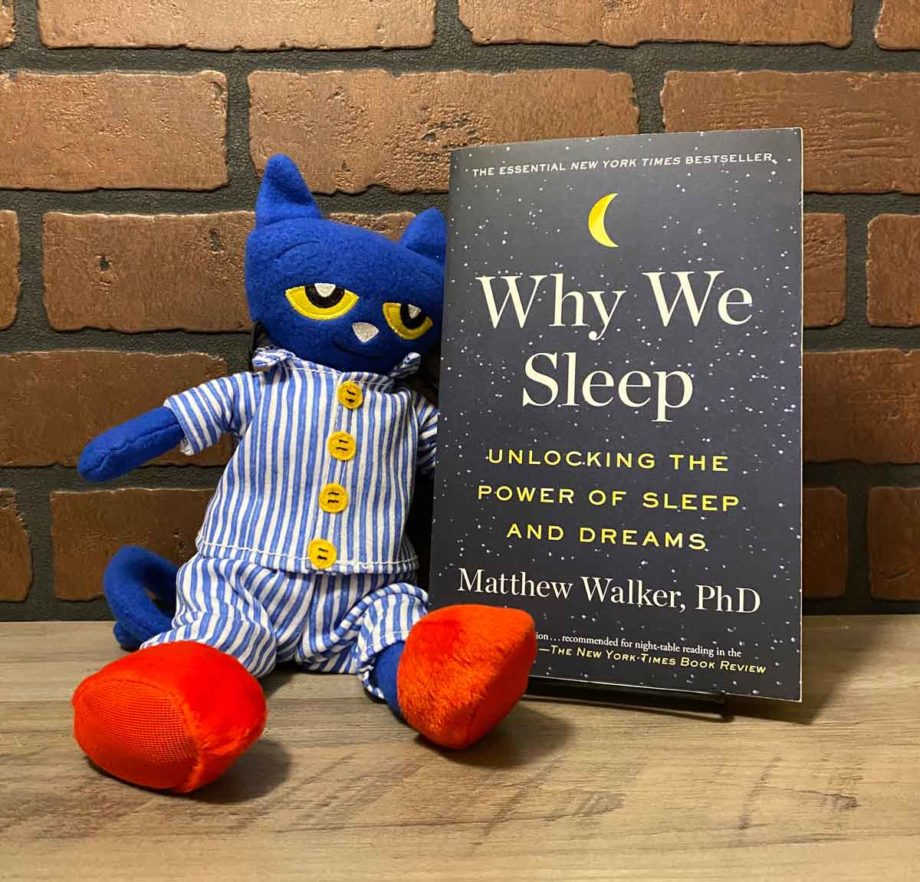
Our Thoughts on Why We Sleep
Matthew Walker, PhD is a Neuroscience and Psychology professor at UC, Berkeley. His book, Why We Sleep: Unlocking the Power of Sleep and Dreams, was a New York Times Best Seller, published in 2018. It apparently took Walker four years to write Why We Sleep, and it is packed with research, some of which came from experiments conducted by the author himself. He’s very forceful in recommending that everyone sleep 7-9 hours each night, more for children, teenagers, and college students.
We’ve known for awhile that sleep is important; at least that’s what we told our kids when turning off the bedside lamp and/or taking away the flashlight and book under the covers after lights out. We talked about sleep being important for growing bodies – which sort of worked with our basketball obsessed son, and for growing minds – which sort of worked with our literature/theater obsessed daughter. (She was also a singer, but we never did think to talk about growing vocal cords – opportunity missed!)
Although some people may be turned off by the gloom, doom, and urgency with which Walker warns against what he claims the CDC calls a World-Wide Sleep Deprivation Epidemic, he shares some interesting research and makes some valid and convincing points. One experiment, conducted in 1938, involved scientists living deep inside Mammoth Cave over a period of time to measure human temperature and sleep cycles minus the variables of light and clocks, paving the way for the discovery of circadian rhythms. He also points out that sleep deprivation has been used by the military and cults as a form of torture and/or mind control and claims both the Chernobyl and Exxon Valdez disasters could have been avoided if only those involved had been better rested. In addition, he points out that the Guinn ess Book of World Records no longer includes sleep deprivation records due to the dangers of attempting such a feat. So why not just take a sleeping pill and drift off – problem solved? You don’t even have to read the chapter entitled The Bad, The Bad, and the Ugly on sleeping pills to find out how he feels about prescription and other similar sleep aids. I developed a pretty good Z-quill nonhabit-forming habit at one and went cold turkey immediately after reading this chapter.
In Conclusion
Why We Sleep is not only all about the ugly and the bad discoveries connected to sleep research, it also paints a soothing picture of “complex neurochemical baths” nourishing our brains while we sleep. I prefer to think about these brain spa treatments rather than obsess about how much caffeine I’m consuming (giving up coffee is just not an option for me) or calculating the lost weekday sleep minutes I need to make up during the weekend (which Walker says is pointless, anyway). For me, like many people, the more I worry about getting enough sleep, the harder time I have sleeping. However, I’m giving this book 4 stars and am glad that I read it. If nothing else, it gives me a legitimate excuse for going to bed at 8:00.
Pick up a copy in our shop. Just don’t steal Pete the Cat’s copy!

